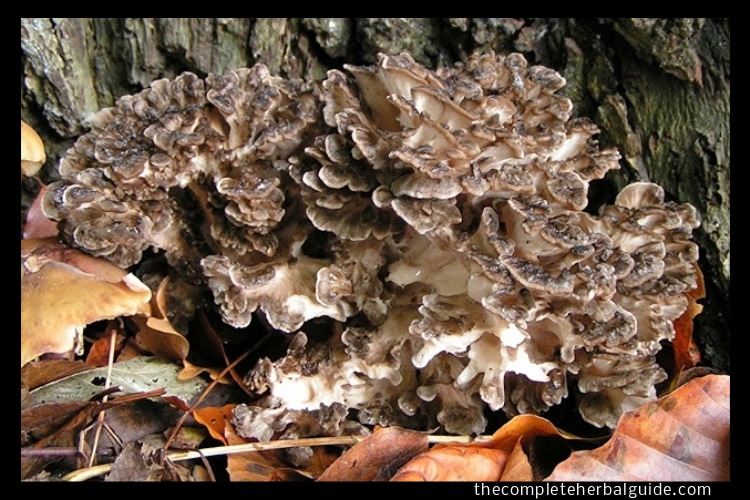
14 Proven Health Benefits of Turmeric and Curcumin
In this article, you’ll learn and discover the proven health benefits of turmeric and curcumin.
Table of Contents
- What is Tumeric?
- 14 Tumeric and Curcumin Benefits
- It’s Anti-Inflammatory
- Turmeric Supports Healthy Metabolism and Aids in Helping Diabetes (maintaining normal blood sugar levels)
- Boosts Brain Power
- It Fights Heart Disease
- Turmeric Supports Memory
- Turmeric Promotes Overall Joint Health and Mobility
- An Effective Form of Cancer Treatment
- Promotes Healthy Cholesterol Levels.
- It Relieves The Symptoms of Arthritis
- Promotes Healthy Gut (bloating, gas, leaky gut, and indigestion)
- Turmeric Promotes Anti-Aging and Helps Skin Conditions
What is Tumeric?
Turmeric is a spice that comes from the turmeric plant. It is commonly used in Asian food. You probably know turmeric as the main spice in curry. It has a warm, bitter taste and is frequently used to flavor or color curry powders, mustards, butter, and cheeses. But the root of turmeric is also used widely to make medicine. It contains a yellow-colored chemical called curcumin, which is often used to color foods and cosmetics.
Turmeric is used for arthritis, heartburn (dyspepsia), joint pain, stomach pain, Crohn’s disease and ulcerative colitis, bypass surgery, hemorrhage, diarrhea, intestinal gas, stomach bloating, loss of appetite, jaundice, liver problems, Helicobacter pylori (H. pylori) infection, stomach ulcers, irritable bowel syndrome (IBS), gallbladder disorders, high cholesterol, a skin condition called lichen planus, skin inflammation from radiation treatment, and fatigue.
It is also used for headaches, bronchitis, colds, lung infections, fibromyalgia, leprosy, fever, menstrual problems, itchy skin, recovery after surgery, and cancers. Other uses include depression, Alzheimer’s disease, swelling in the middle layer of the eye (anterior uveitis), diabetes, water retention, worms, an autoimmune disease called systemic lupus erythematosus (SLE), tuberculosis, urinary bladder inflammation, and kidney problems.
Some people apply turmeric to the skin for pain, ringworm, sprains, and swellings, bruising, leech bites, eye infections, acne, inflammatory skin conditions and skin sores, soreness inside of the mouth, infected wounds, and gum disease.
Turmeric is also used as an enema for people with inflammatory bowel disease.
In food and manufacturing, the essential oil of turmeric is used in perfumes, and its resin is used as a flavor and color component in foods.
Don’t confuse turmeric with Javanese turmeric root (Curcuma zedoaria).
Turmeric, known for its pivotal role in Indian curries and a range of other Asian culinary delights, can be considered the most potent spice on earth for reversing inflammation and warding off disease. For this reason, this orange herb is one of the most well-researched natural medicines on the planet, with new health benefits being discovered all the time.
14 Tumeric and Curcumin Benefits
It’s Anti-Inflammatory
While short-term inflammation in the body is a necessary component of a healthy functioning system, helping to fight off the pathogenic invasion and repairing tissue and muscle damage, chronic inflammation is widely attributed to almost every disease known to the Western world. This includes heart disease, cancer and a whole host of neurological disorders.
For this reason, keeping chronic (long-term) inflammation to a minimum should definitely be one of your top priorities. And to help you realize that priority, we have just the thing — curcumin! The high concentrations of curcumin contained in turmeric act to target multiple steps in the inflammatory pathway, blocking inflammatory markers at the molecular level and thereby significantly lowering long-term inflammation in your body.
The result is that you’re less likely to develop a serious illness or disease, which is always nice.
Turmeric Supports Healthy Metabolism and Aids in Helping Diabetes (maintaining normal blood sugar levels)
Turmeric has been used to treat diabetes in Ayurvedic and Traditional Chinese Medicine for years. A 2013 review of scientific studies found that curcumin stabilizes glucose levels in the blood and also helped with complications related to diabetes. In one study, 100 overweight people with type 2 diabetes took either 300 mg. of curcumin or a placebo for 12 weeks. The researchers found that those taking curcumin had significantly lower fasting blood glucose.
There is promising research suggesting curcumin may reduce the risk of developing diabetes in high-risk people too. In a 2012 study, all participants who took curcumin extract for 9 months didn’t develop diabetes, although they were prediabetic. While 16% of the prediabetic participants who took a placebo did develop diabetes after the 9 months.
Boosts Brain Power
Common brain disorders, including depression and Alzheimer’s disease, have been linked to diminished levels of an important neurologic growth hormone called brain-derived neurotrophic factor (BDNF). Several studies have shown that curcumin, the active medicinal compound in turmeric, can increase levels of BDNF in the human brain and therefore delay or even reverse a range of common neurological disorders.
In addition, scientists are beginning to suspect that the neurologic powers of curcumin don’t just stop there, with research suggesting that this compound may improve memory and increase cognitive capacity — in effect, making you a brainiac. Nerdy is the new cool, so start heaping on the turmeric, people!
It Fights Heart Disease
Once again, our friend curcumin comes to the rescue, this time to fight off the most prevalent disease-based killer in the world. It does this by helping the body’s endothelium (the lining on every one of your blood vessels) to function at its optimum level, similar to the effect found during intense exercise.
Studies have shown that endothelial dysfunction is a common cause of heart disease, occurring when the endothelium is no longer able to regulate blood pressure, clotting and a number of other factors. Therefore, by improving endothelial function, curcumin lowers your risk of heart disease.
In addition to helping out the endothelium, curcumin also reduces inflammation and oxidative damage, two factors that are also common contributors to heart disease.
Turmeric Supports Memory
Curcumin has the amazing ability to boost a protein in the brain called BDNF. This important protein – brain-derived neurotrophic factor (BDNF)– is responsible for helping the brain grow. It’s been shown to increase neurons and form new connections in the brain – two things we really need as we get older. BDNF builds up the “roadway” in your brain so that neurotransmitters like serotonin and dopamine can travel more easily where they need to go. Which is why high BDNF levels are linked to better memory and mood… And, when BDNF levels are low, the risk of Alzheimer’s and depression goes up.
Turmeric Promotes Overall Joint Health and Mobility
As the curcumin in turmeric is an anti-inflammatory, it can benefit the joints and help keep them from getting inflamed and swollen. This was demonstrated in a scientific study on rheumatoid arthritis patients. Rheumatoid arthritis (RA) is a chronic inflammatory disorder that causes painful swelling in the joints. Researchers found that 500 mg. of daily curcumin was more effective than the prescription drug Diclofenac when given to RA patients.
When it comes to taking turmeric for your joints, it was shown most effective when taken before symptoms kick in, as a preventative measure to keep your joints healthy, pain-free, and mobile. But some studies have demonstrated it can help treat osteoarthritis (a degenerative disease of the joint) as well.
Turmeric Improves Mood
As the curcumin in turmeric boosts the brain-builder protein BDNF, it may help prevent depression. Curcumin can also give a boost to serotonin and dopamine – two “happy” chemicals in the brain. It shows promise for helping people who already have depression too. In one study, 60 people diagnosed with depression were given either Prozac, curcumin, or a combo of the two. Those who took just the curcumin had improvements in their mood on par with Prozac – while those who took both had the best results during the 6-week study.
Turmeric Supports Weight Loss
Elevated stress can cause sudden weight gain. When stress hormones (cortisol) get out of whack, fat accumulates near the stomach because the cells in the stomach are more sensitive to cortisol and very effective at storing energy. As turmeric can help you balance your stress hormones, it can help stop that extra spare tire from forming around your waist.
The anti-inflammatory properties in curcumin are able to fight obesity too. One study actually found that taking curcumin can reduce the growth of fat cells.
An Effective Form of Cancer Treatment
Moving from one terrible affliction to the next, turmeric also proves its worth in the field of cancer. While cancer can be found in many forms, there are certain properties that link all cancers, and these evil properties appear to be susceptible to the healing powers of curcumin.
Over the years, cancer research has examined the role curcumin plays in treating this disease. These studies have found that curcumin can significantly inhibit the growth, development, and movement of cancer throughout the body. One of the mechanisms by which it does this is reducing the growth of new blood vessels in tumors (otherwise known as angiogenesis) and can also directly contribute to the death of cancerous cells.
While these linkages between cancer and curcumin still need to be positively verified, the growing body of research suggests that consumption of high doses of curcumin (such as in supplemental form) can significantly lower your risk of cancer.
Promotes Healthy Cholesterol Levels.
High cholesterol is known to be caused by oxidative stress. It is brought on to the body by chronic inflammation and high blood sugar. So, again, reducing inflammation in the body supports healthy cholesterol levels.
One study found curcumin comparable to prescription drug Lipitor on endothelial dysfunction in reducing inflammation and markers of oxidative stress. An earlier animal study showed similar results on the body.
One study of human volunteers found that taking 500 mg. of daily curcumin dropped their total cholesterol by 11.63 %, while their HDL (the “good” cholesterol) went up 29% in just 7 days.
It Relieves The Symptoms of Arthritis
Due to our penchant for inflammatory foods (hydrogenated oils, sugars, and artificial additives, for example) and very little daily movement, arthritis is a common issue in America and most Western countries.
The curcumin found in turmeric is an effective treatment for the ravages of arthritis, helping to lower the joint inflammation that makes the movement so painful for arthritis sufferers, and simultaneously improving nutrient absorption and antioxidant activity in the body. The result is that curcumin supplementation, or just a bucketload of turmeric on your food every day, can significantly reduce pain associated with arthritis.
Promotes Healthy Gut (bloating, gas, leaky gut, and indigestion)
Turmeric has been used for centuries in Ayurvedic medicine to improve digestion and heal gut inflammation – likely due to its nature as an anti-inflammatory. Also, the curcumin in turmeric stimulates the gallbladder, helping your body produce bile to break down food and improve digestion. One study found that turmeric has the ability to reduce bloating and gas symptoms in people who have indigestion. Some research shows curcumin can help people with ulcerative colitis too – an inflammatory bowel disease that causes sores in the digestive tract.

Turmeric Reduce Stress
If you feel stressed, adaptogens should be your new best friend! In herbal medicine, some botanicals are termed “adaptogens”, which means they have the ability to modulate the release of stress hormones from the adrenal glands. This can help you adapt better to physical and emotional stress and be more resilient to anything that comes your way. They also help to keep your hormones balanced.
The curcumin in turmeric is a known adaptogen that has the ability to decrease the secretion of stress hormones in the body. In 2011, researchers in India found that turmeric had several adaptogenic properties that help with body weight, memory, blood sugar, and moreover that it helps the body maintain healthy stress hormone levels.
Turmeric Promotes Anti-Aging and Helps Skin Conditions
Turmeric is an anti-aging powerhouse. Given that it’s an antioxidant – it can fight oxidative damage and boost the overall look of the skin. It’s anti-inflammatory properties help fight the appearance of aging skin as well. A scientific review of studies in 2016 found that turmeric has the ability to improve numerous skin conditions when it’s either ingested or applied directly to the skin.











